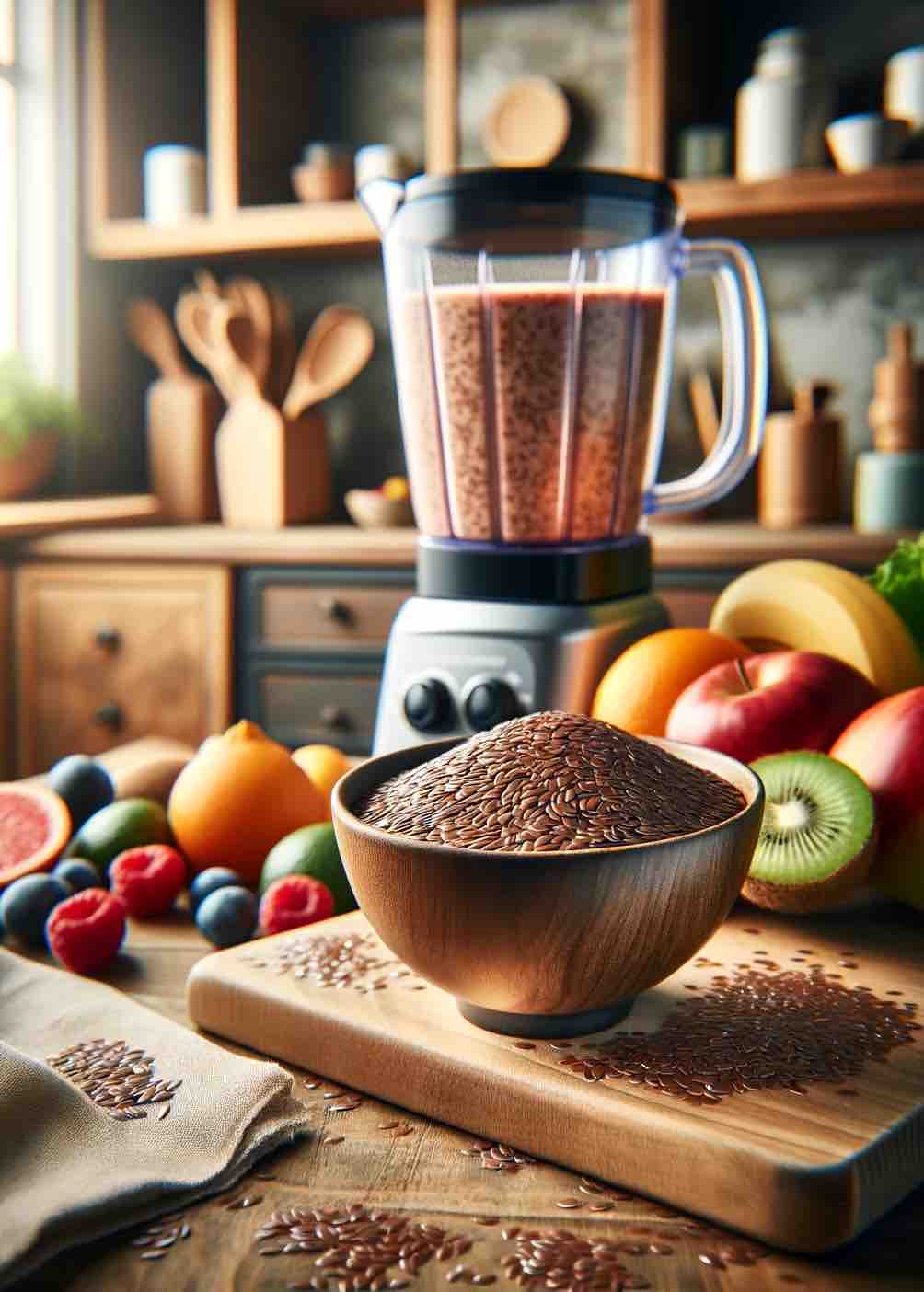
Are you on a quest for a natural, effective way to shed those extra pounds? Look no further than the humble flax seed! This tiny powerhouse is not just a diet supplement; it’s a revolution in your weight loss journey and overall health. Here’s your all-in-one guide to understanding why and how flax seeds should be your go-to superfood.
Why Flax Seeds?
- Nutrient-Dense Powerhouse: Flax seeds are a rich source of nutrients. Each tablespoon is packed with fiber, protein, and omega-3 fatty acids, essential for a healthy body. Their high fiber content aids in digestion and keeps you feeling full longer, cutting down on unnecessary snacking. The omega-3s, particularly alpha-linolenic acid (ALA), play a crucial role in maintaining heart health and reducing inflammation.
- Metabolism Booster: The lignans in flax seeds, over 800 times higher than in other plant foods, not only fight inflammation but also boost your metabolic rate, making your body more efficient at burning fat.
- Blood Sugar Stabilizer: The fiber in flax seeds helps stabilize blood sugar levels, preventing spikes that can lead to unhealthy cravings. This is particularly beneficial for those managing diabetes or insulin resistance.
How to Incorporate Flax Seeds into Your Diet
- Start Your Day Right: Add ground flax seeds to your breakfast cereal, yogurt, or smoothie. A tablespoon can go a long way in boosting your morning meal’s nutritional value.
- Bake with Flax: Use flax seeds as an egg substitute in baking. Mix one tablespoon of ground flax seeds with three tablespoons of water and let it sit for a couple of minutes. This mixture can replace one egg in recipes like pancakes, muffins, and cookies.
- Salads and More: Sprinkle ground or whole flax seeds on salads, soups, and stews. Their nutty flavor adds a delicious crunch to your meals.
- Flaxseed Oil: For a quick and easy intake, incorporate flaxseed oil into salad dressings or smoothies. It’s a straightforward way to get your daily dose of healthy fats.
Beyond Weight Loss: Other Remarkable Benefits
- Heart Health: The ALA in flax seeds has been linked to a lower risk of heart disease. Regular consumption can improve cholesterol levels and maintain arterial health.
- Cancer Prevention: Some studies suggest that the lignans in flax seeds may help reduce the risk of certain cancers, particularly breast and prostate cancer, due to their hormone-regulating properties.
- Digestive Health: The fiber in flax seeds promotes regular bowel movements and contributes to gut health, a key aspect of overall wellness.
Things to Remember
- Grind Them: Whole flax seeds might pass through your system undigested, so grind them to ensure you absorb all the nutrients.
- Stay Hydrated: Due to their high fiber content, ensure you drink plenty of water throughout the day.
- Consult a Professional: Always consult with a healthcare provider before making significant changes to your diet, especially if you have specific health conditions.
Conclusion
Flax seeds are not just another diet trend; they are a sustainable, nutritious addition to your lifestyle. Whether you’re looking to lose weight, improve your heart health, or just add a nutritional punch to your diet, flax seeds are a versatile and easy choice. Start incorporating these tiny seeds into your diet today and feel the difference in your body and health!
10 FAQs About Flax Seeds for Weight Loss
- Can flax seeds really help with weight loss? Yes, flax seeds can aid weight loss due to their high fiber content, which promotes satiety and reduces appetite, and their omega-3 fatty acids, which improve metabolic health.
- How much flaxseed should I consume daily for weight loss? A general recommendation is one to two tablespoons of ground flaxseed per day to reap the weight loss benefits without overconsuming calories.
- Should I eat flax seeds whole or ground? It’s best to consume ground flax seeds as whole seeds may pass through your digestive system undigested, preventing you from absorbing their full nutritional benefits.
- Can I use flaxseed oil for weight loss? Yes, flaxseed oil contains healthy fats and can be a part of a weight loss diet, but it lacks the fiber found in whole or ground flax seeds.
- How do flax seeds help in controlling blood sugar levels? The high fiber content in flax seeds slows down the digestion of sugars, which helps in stabilizing blood sugar levels.
- Are there any side effects of consuming flax seeds? Consuming flax seeds in moderation is generally safe, but overconsumption can lead to gastrointestinal discomfort due to its high fiber content.
- Can flax seeds improve digestive health? Yes, the fiber in flax seeds promotes regular bowel movements and contributes to overall gut health.
- Do flax seeds have any other health benefits? Besides weight loss, flax seeds are known to improve heart health, reduce the risk of certain cancers, and provide anti-inflammatory benefits.
- Is it safe for everyone to consume flax seeds? While flax seeds are safe for most people, those with certain health conditions or on specific medications should consult a healthcare professional before adding them to their diet.
- How can I incorporate flax seeds into my diet? Flax seeds can be added to smoothies, yogurts, baked goods, salads, and more. Remember to start with a small amount and gradually increase it to suit your dietary needs.
Blog Tags
flax seeds, weight loss, healthy diet, nutrition, superfoods, omega-3 fatty acids, dietary fiber, natural health, wellness tips, metabolic health












